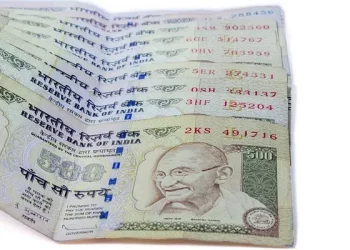The Indian Rupee (INR) holds significant value in the Indian financial market and the broader global economy. For non-resident Indians (NRIs), managing finances in India can be both a convenient and profitable affair. One of the most common ways NRIs handle their finances is through NRO (Non-Resident Ordinary) accounts. These accounts serve as an essential tool for NRIs to manage their income generated in India, such as rent, dividends, or pensions. But a question that often arises is whether it is possible to deposit INR into an NRO account.
To fully understand the complexities of this question, it is essential to explore what NRO accounts are, the regulations governing them, and the specific role that Indian Rupees (INR) play in the deposits. We will delve into these details, uncovering the answers step by step.
Understanding NRO Accounts
A Non-Resident Ordinary (NRO) account is a savings or current account opened by NRIs to manage income earned in India. The types of income that can be deposited into an NRO account include:
- Rent
- Pension
- Dividends
- Interest income from Indian investments
- Income from Indian businesses or professional practice
NRIs open NRO accounts for the purpose of managing their income from Indian sources, as it allows them to hold and manage their earnings in Indian Rupees.
It is important to note that an NRO account can only be opened by an NRI in India, and the funds in these accounts are held in Indian Rupees (INR). This currency aspect plays a crucial role in understanding whether or not INR can be deposited into an NRO account.
What is Indian Rupee (INR)?
The Indian Rupee (INR) is the official currency of India, issued and controlled by the Reserve Bank of India (RBI). It is the only legal tender within the country and is used for all financial transactions, including deposits, withdrawals, and investments. In the context of foreign exchange and international financial markets, the INR is often paired with other currencies, such as the US Dollar (USD), Euro (EUR), and British Pound (GBP).
For NRIs, managing Indian Rupees becomes crucial as they often have financial obligations in India, including family support, property maintenance, and business investments. Therefore, understanding how the Indian Rupee operates within the NRO account structure is essential.
Can Indian Rupees Be Deposited into an NRO Account?
The simple answer is: Yes, Indian Rupees (INR) can be deposited into an NRO account. In fact, all funds in an NRO account must be held in INR. However, there are several nuances to this situation that must be understood.
1. Types of Deposits in NRO Accounts
The NRO account is designed to handle deposits made in Indian Rupees. This includes both cash deposits and transfers made from Indian sources. Here are the primary ways INR can be deposited:
Cash Deposits: If you are in India, you can deposit Indian Rupees in the form of cash at any bank branch where your NRO account is held. This is a standard procedure for NRO accounts.
Cheque Deposits: You can deposit Indian Rupees into your NRO account through cheques drawn on Indian banks. This process is similar to any regular savings account.
Electronic Transfers: Transfers of INR from other Indian accounts, such as savings accounts or current accounts, can be made to the NRO account. These transfers may be initiated through NEFT, RTGS, or IMPS (depending on the bank’s facilities).
Income-Based Deposits: As mentioned earlier, incomes such as rent, dividends, pension, or interest income from Indian investments are also deposited in INR into NRO accounts.
2. Foreign Currency to INR Conversion
While it is clear that Indian Rupees can be deposited into an NRO account, many NRIs often wonder about depositing foreign currencies. If an NRI wishes to transfer foreign currency into an NRO account, they will have to convert the foreign currency into Indian Rupees (INR). This process is governed by the Reserve Bank of India (RBI) and is facilitated by authorized foreign exchange dealers, typically banks.
Once the foreign currency is converted into INR, it can then be deposited into the NRO account. This conversion often incurs a service charge, and the exchange rate at the time of the transaction will determine the final amount credited to the NRO account. Therefore, while the NRO account operates in Indian Rupees, it is possible to deposit foreign currencies by first converting them into INR.
3. Depositing Indian Rupees from Abroad
Another common question among NRIs is whether they can deposit Indian Rupees directly into their NRO accounts while they are abroad. Since an NRO account is strictly for managing income earned in India, the direct deposit of INR from abroad is not common. However, NRIs can still make INR deposits indirectly by using the following methods:
Funds Transfer via Indian Banks: NRIs can transfer money from a foreign bank account to their NRO account through electronic fund transfer systems like SWIFT, but the money will be converted to INR during the transfer process.
Family and Friends in India: NRIs can also instruct family members or friends in India to deposit INR into their NRO accounts on their behalf. This can be done via a direct bank deposit or online transfer from another Indian bank.
Regulatory Framework Governing NRO Accounts
To ensure the proper management of funds within NRO accounts, several regulations govern the deposits and withdrawals. The Reserve Bank of India (RBI) and the Foreign Exchange Management Act (FEMA) set the rules that NRIs and Indian banks must follow.
RBI Regulations: According to the RBI, only income earned in India is eligible for deposit into an NRO account. Foreign earnings or remittances sent from abroad cannot be deposited directly unless converted into INR.
FEMA Guidelines: FEMA (Foreign Exchange Management Act) specifies that NRO accounts must be used solely for the purpose of managing income generated in India. Therefore, while NRIs can deposit Indian Rupees into their NRO account, they must adhere to the limits and regulations outlined by FEMA.
Taxation Considerations: Earnings in an NRO account are subject to Indian tax laws. This means that interest earned on the funds in an NRO account is taxable in India. Additionally, remittances or transfers of INR out of the NRO account to a foreign country are subject to the applicable tax laws. NRIs should consult with tax professionals to ensure they are in compliance with Indian tax regulations.
Advantages of Using an NRO Account for INR Deposits
There are several benefits to using an NRO account for depositing Indian Rupees. These include:
Convenient Management of Indian Income: An NRO account is ideal for managing all sources of income generated in India. Whether it’s rent from property, pension payments, or earnings from business, an NRO account allows you to conveniently deposit and withdraw Indian Rupees as needed.
Easy Access to Funds: NRO accounts are accessible through ATM cards, online banking, and bank branches, making it easy for NRIs to manage their finances in India.
Tax Deduction at Source (TDS): The government deducts tax at source on interest earned from NRO accounts. However, NRIs can claim tax credits or deductions in their home country, depending on the tax treaties in place.
Security: Like other bank accounts in India, NRO accounts are insured under the Deposit Insurance and Credit Guarantee Corporation (DICGC), ensuring that the funds in your account are secure up to a certain limit.
Conversion Flexibility: NRIs have the option of converting their foreign currency into INR for deposit into their NRO account, allowing them to handle their finances in India without much hassle.
Conclusion
In conclusion, Indian Rupees (INR) can indeed be deposited into an NRO account, and this is the primary currency used for transactions within such accounts. NRIs can deposit INR either in cash, via cheque, or through electronic transfers, as long as the funds are from Indian sources. If an NRI wishes to transfer foreign currency to an NRO account, they must first convert the funds into Indian Rupees, and the exchange rate and conversion charges will apply.
It is important for NRIs to understand the regulatory framework governing NRO accounts, including the limitations on depositing foreign funds and the tax implications. Overall, the NRO account serves as a vital tool for managing Indian income and handling INR-based transactions for NRIs, ensuring that their financial operations in India are as seamless as possible.
Related Topics:

























